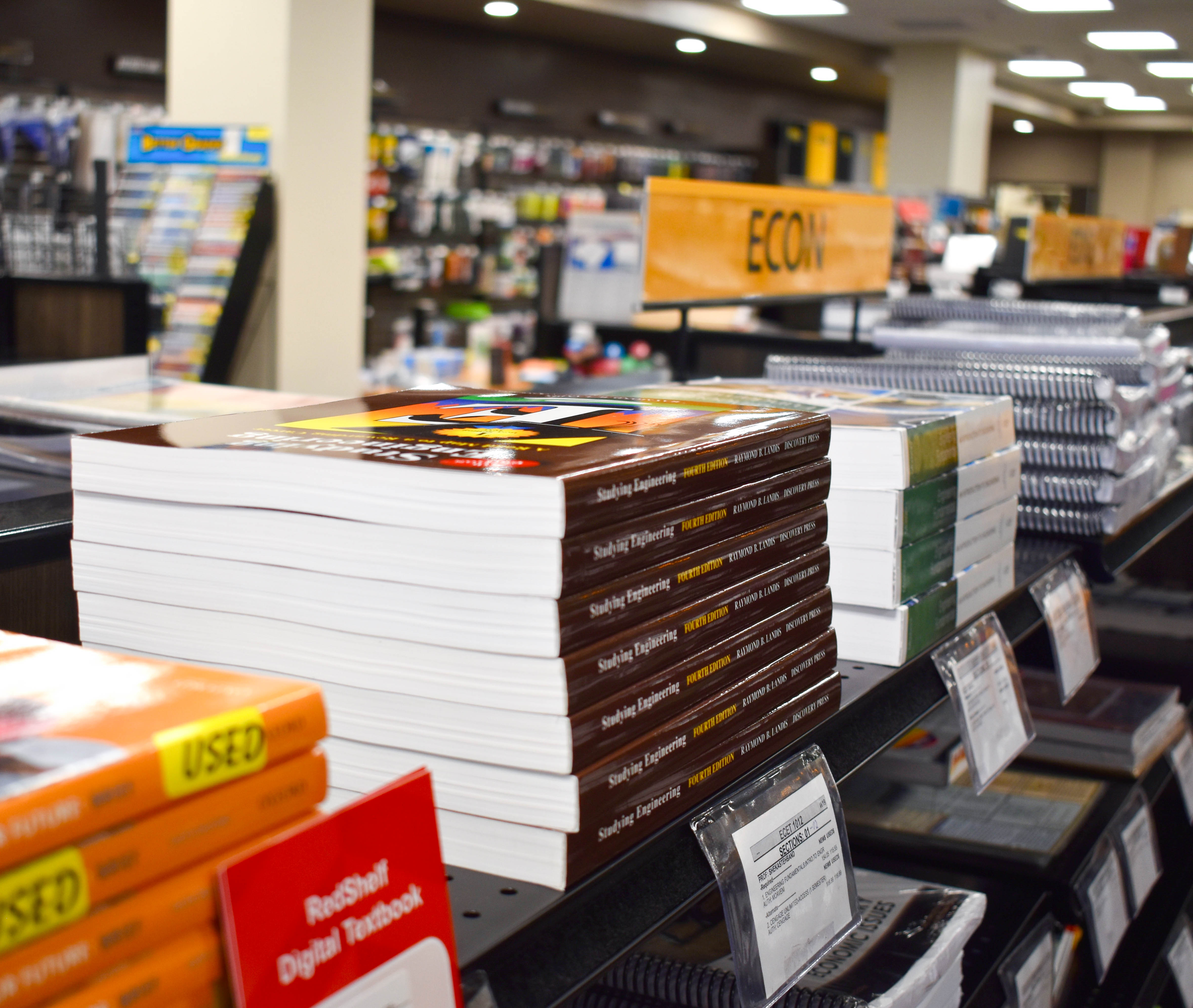College textbooks are often criticized for being expensive. Many textbooks get an updated version extremely often, even though a new cover and page count are usually the only significant changes. These frequent new editions cause many problems for both students and staff each year and are a severe waste of money and resources.
With each new semester, professors often require the latest version of their textbooks which, according to a survey conducted by the California Student Public Interest Research Group, are published every three to four years on average — some even updated yearly. The same survey showed that more than 40 percent of faculty consider new editions unnecessary, as they lack new information much of the time.
Professors must also adjust to the new pages in their classes, often having to change materials to accommodate the new text. Additionally, prices of the new editions tend to be much higher than older or used books. It is difficult for professors to justify new editions, and the issues it causes for students are even more troubling.
“Book publishers don’t have the students’ interests in mind,” junior early childhood education major Sam Kurtz said. “They only have their wallets in mind. However, I think teachers usually understand and allow you to buy older editions.”
According to the College Board, average college students attending a 4-year university spend about $11,140 on textbooks alone. A survey conducted by Morning Consult reveals that 43 percent of college students claim to have skipped spending on meals in order to afford college textbooks. Having to buy new editions of textbooks each year only heightens the issue, as according to the College Board, updated versions of books are 58 percent more expensive than used or older books. A constantly updated book gives institutions the illusion that older editions are obsolete and remove the option for students to buy older versions as professors begin to use the new publications.
Constantly publishing new versions of books is also a waste of resources. Expired editions of textbooks simply get thrown away with every new edition, creating a pile of 640,000 tons worth of textbooks nationally, according to a National Wildlife study. This is a tragedy considering that perfectly good ‘used’ textbooks could have been reused instead. The new edition prevents the possibility of recycling when the latest version is required for the class.
Of course, publishers will continue to put out new versions of the same material, making this an issue not very easily solved. Thankfully, some professors will suggest alternatives to the latest editions of textbooks which can be a more economical choice for students. The Kennesaw State bookstore has used and rental books available, which can be helpful in keeping the cost a little lower. According to CBS news, some schools have begun to implement copy-right free and open-access textbooks that also aid in keeping costs down for students.
These temporary solutions are helpful, but only soothe the symptoms of a bigger issue. Instead, textbook companies need to limit the number of new editions more reasonably.
New editions of textbooks are expensive, wasteful and add minimal information that older editions did not already have. Students already suffer from financial headaches, and frequently renewed textbooks only make it worse.


